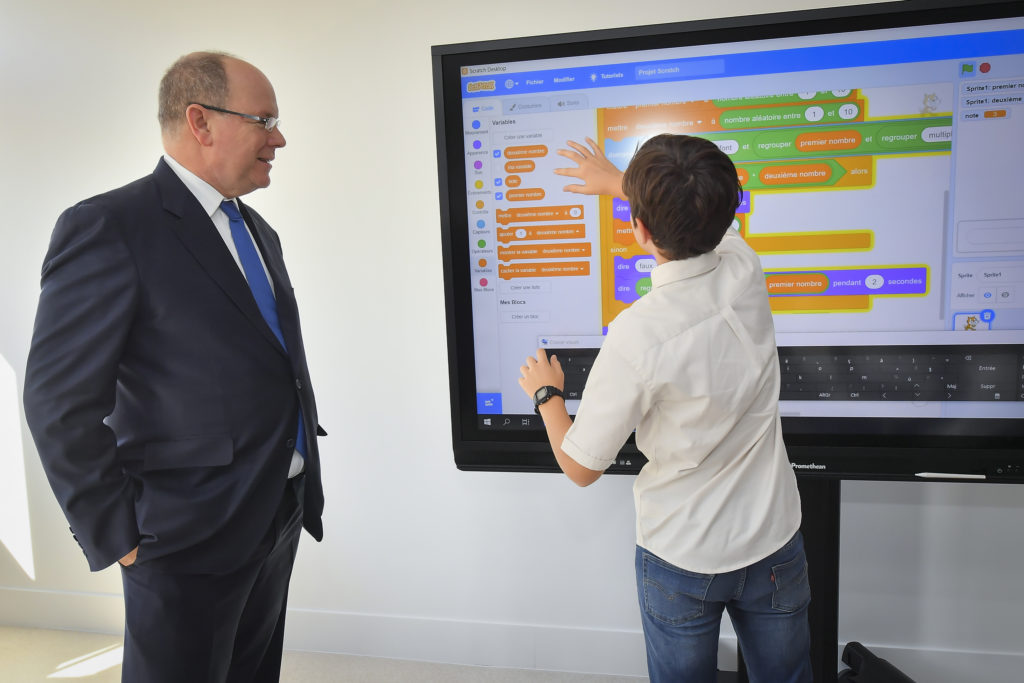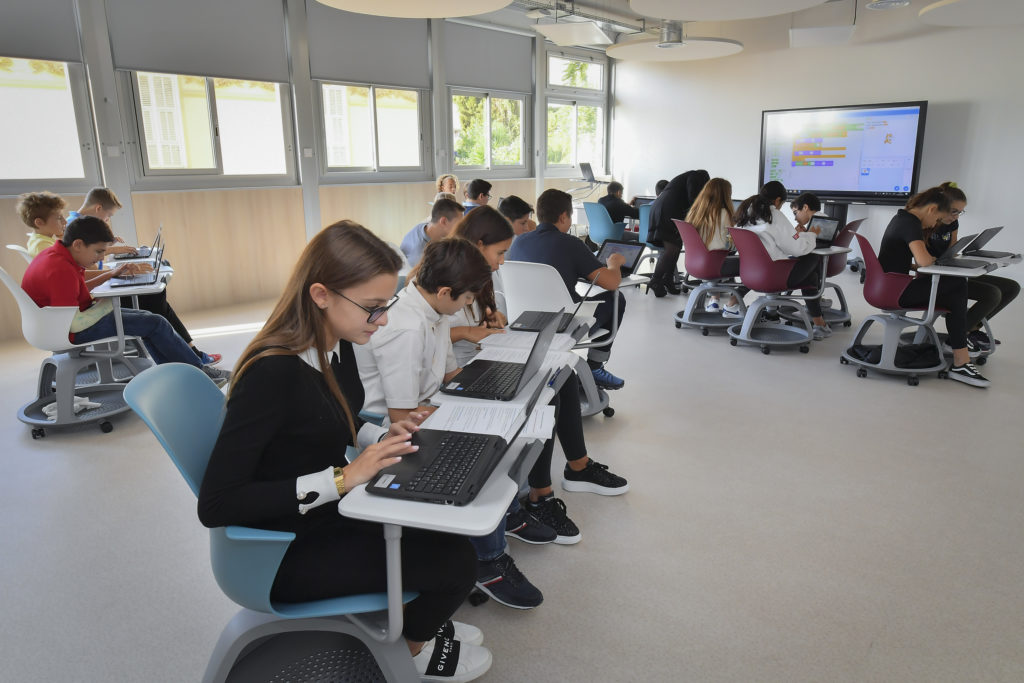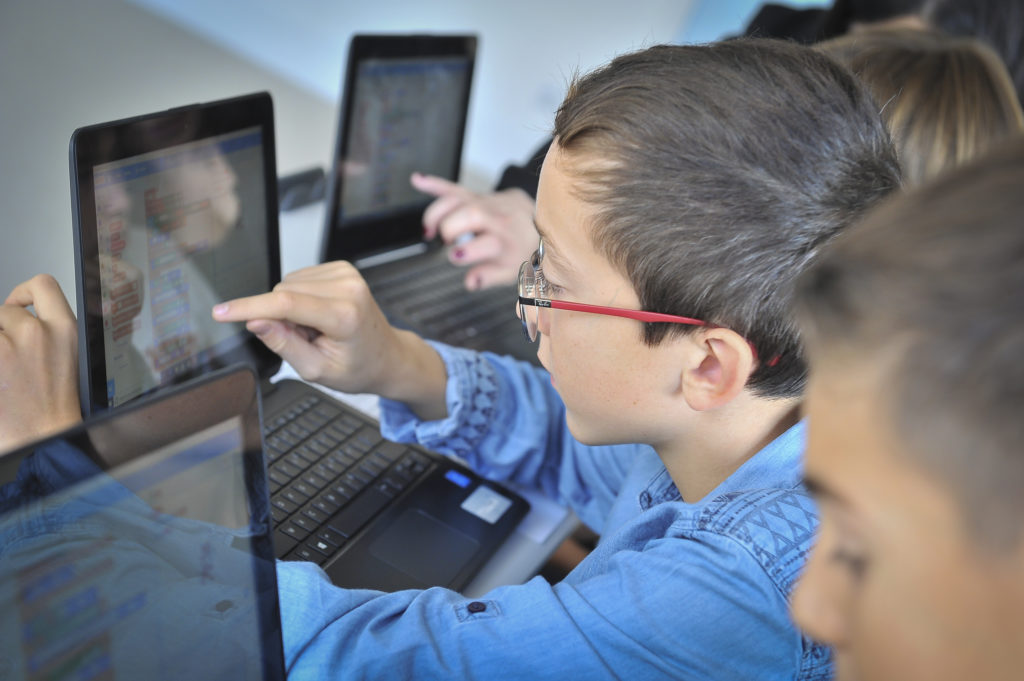Officially opened on 17 October in the presence of the Sovereign Prince, Edu Lab illustrates the Prince’s Government’s ambition in the field of e-education.

The opening of Edu Lab is a major step for the Extended Monaco programme. The establishment of this centre of digital excellence turns the priority accorded by the Prince’s Government to e-education into a reality.
The teacher training space is located just below the Department of Education, Youth and Sport and is equipped with some innovative tools, including virtual reality headsets, which have been made available to help develop and implement digital education projects. The centre’s aim is to improve teachers’ skills both in the use of digital solutions and in the production of content, and to foster a sense of group competition. “Edu Lab Monaco is an initiative that meets the objective of enhancing the value of public service by promoting links between teachers, creating a team environment while valuing each individual’s creativity,” explains Nicolas Rodier, Technical Advisor at the Department of Education.
The 200-m2 centre will include a test classroom and a project codesign space. Its role will be to:
- Trial educational uses for digital technology (in the test classroom)
- Bring in experts
- Provide advance access to new digital teaching practices
- Offer teacher training against a background of changes in professional practices and behaviours provoked by digital technology
- Facilitate project codesign. To this end, the centre of excellence will provide a suitable venue for supporting project leaders with their development, tools, and search for resources and methodological support
- Enable teachers to collaborate on the production of digital content
In other words, through this training, teachers will have an opportunity to experiment with digital devices, tools and software, and to learn how they work. They will then be able to create educational content, and be in the best position to pass it on to their pupils.

Education designed to meet the challenges of the 21st century
To ensure that education in Monaco remains an attractive prospect, it is vital that it is designed to meet the needs of the twenty-first century. This will enable pupils from the Principality to access the best higher education institutions, which are undergoing their own digital transformations and reviewing their selection criteria accordingly. It is for this reason that, beginning in autumn 2019, pupils enrolled in Monaco’s schools, from nursery through to lower secondary, have been receiving one hour per week of coding lessons. “Reading, writing, arithmetic and coding are the four basic skills that Monaco wants all of its pupils to learn now,” says Nicolas Rodier. “Learning to code is a key challenge for our young people. Digital technology is a reality which is fundamentally changing our economy and society. School must prepare our pupils for the world which is coming.”

Teachers: full participants in the initiative
The only way that this overhaul of teaching practices will be possible is if we allow teachers to become full participants in the initiative, to have access to high-level experts and innovative teaching practices. The Edu Lab centre now makes this possible.
During the first Digital Education Conference, held on 5 April 2019 and attended by more than 200 teachers from the Principality, teachers shared their wish for access to a space equipped with the latest technology where they could design and build innovative educational projects; a space that would encourage the sharing of practices and be inspiring. Edu Lab Monaco is the response to this need.
6 identified innovative educational and teaching projects
The first Digital Education Conference also produced a number of innovative educational and teaching projects. The Prince’s Government selected six projects to receive financial support:
- A multidisciplinary language lab. This classroom was established at Collège Charles III for the start of the new school year in 2019.
- An educational escape game called “The Suffocating School”, to raise secondary school pupils’ awareness of climate change caused by greenhouse gas emissions and to identify “antidotes” to reduce the school’s carbon footprint. This project will be implemented during the course of this academic year.
- The “budding secondary school journalist” to develop critical thinking skills. This project will be implemented during the course of the 2019/2020 academic year.
- “Applying coding to grammar”. This project will be implemented during the course of this academic year.
- The idea of a smart beehive on the school roof, as an alternative to the disappearance of bees in rural areas, offering a chance to identify the criteria that will ensure the “good health” of a hive in an urban area. This project will be implemented during the course of this academic year.
- “Be the hero of our story”, a collaborative writing project. This project will be implemented during the course of this academic year.



